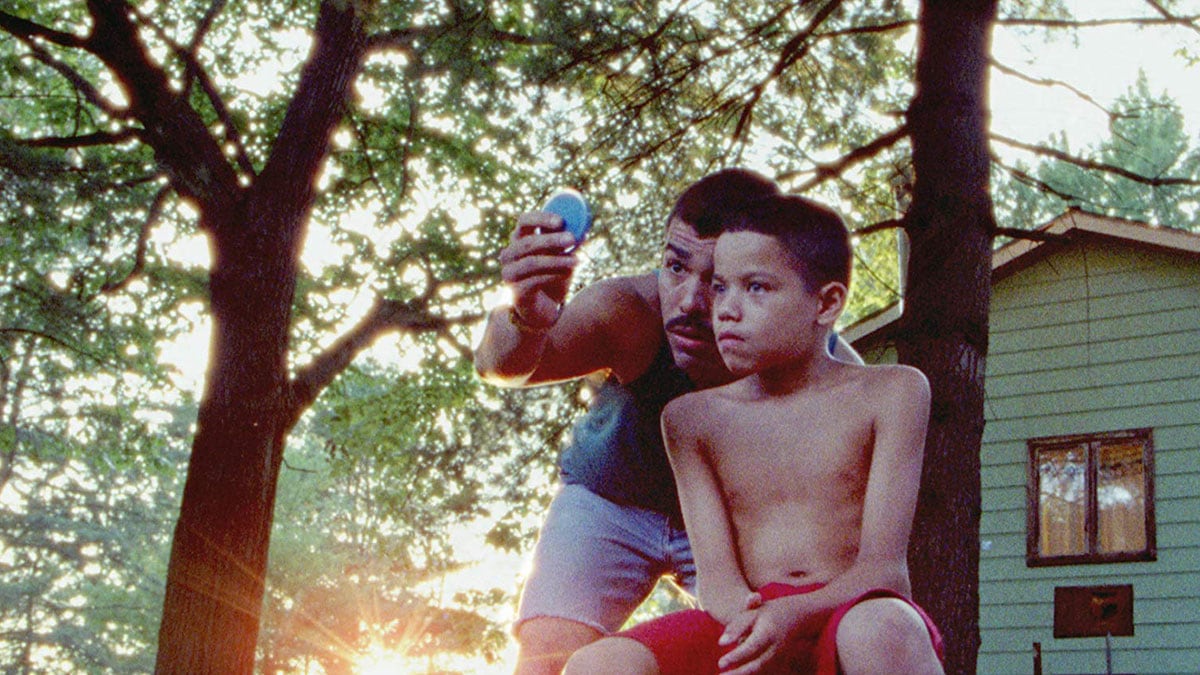We the Animals isn't the sort of film to leave you wondering what William Goldman or Nora Ephron acolyte penned the dialogue. It's a cinematographer's picture. The human drama feels found and dreamt more than written, intimating the lives of three brothers approaching adolescence and roaming every wooded and rusted inch of their upstate New York world.
The film's visual priorities meant first-time screenwriter and Portlander Daniel Kitrosser had to acclimate to a new style for We the Animals, which has five Independent Spirit Awards nominations—the most of any film this year—including Best First Feature. Writing alongside director Jeremiah Zagar, Kitrosser traded the self-effacing wit of his acclaimed theatrical works (not to mention his interviews) for pensive invented images. An example of that in the film is when we see the three boys rolling toy racecars over the body of their depressed mother. Wordlessly, we see their loving exploration, their blissful insensitivity.
"All my plays are filled with Jewish gay people yelling at each other," Kitrosser says. "They're absurdist, they're funny, so this was the perfect crash course in screenwriting, because I had to check all my impulses at the door."
The project came to Kitrosser via Zagar, a school friend from his Philadelphia youth. The director had picked up Justin Torres' 2011 book on a lark, felt immediately inspired to direct a film version and subsequently hunkered down with Kitrosser in his Lower East Side apartment to adapt the story. Actually, "translate" is the word Kitrosser and Zagar prefer. They shifted the first-person perspective in the novel, which doesn't even name its narrator, into an oblique family drama as observed by Jonah, the youngest of the brothers, who slowly begins to withdraw into his own sphere of art and sexuality.
"We would argue through a chapter, and I would write while Jeremiah made lunch," Kitrosser recalls. "Then, we'd go over the pages, and he'd take out all my jokes, and that was what we did for a year."
Kitrosser's perspective helped the project stay true to Torres' original work, especially because the film version lops off the final third of the book's depiction of the narrator's teenage years. The screenwriter had to ask himself "where the queerness was" in Jonah's childhood.
"We didn't want to jump through time because we didn't want the audience to have to connect with a new actor. And then Moonlight came out, and we were like, 'Fuck!'" he laughs. "But what I really felt quite viscerally was a little gay boy constantly being aware of male bodies. I just felt it."
This awareness mostly shows up in the movie through actor Evan Rosado's knowing green eyes and Jonah's perspective of other male characters, especially his father, played by Raúl Castillo (who's also nominated for a Spirit Award). In a family of performers, Jonah is a watcher, and the film is driven by roiling internal energy, the byproduct of family strife and a shadow of abuse into which Kitrosser said he tapped by dispensing with the "linear and logical."
Ultimately, though, a script is just a blueprint for a movie, and Kitrosser estimates he got as much from being on a live set as he gave to that experience. During shooting, the co-writer doubled as a "part-time child wrangler" for the movie's young actors and, he jokes, successfully fended off an existential crisis over being a scribe turned baby sitter. And despite the movie's affecting themes and tones, Kitrosser's seemingly incompatible sense of humor did Trojan-horse its way into one moment. It's a shoplifting scene, and two of the desperately hungry brothers are stealing snacks while the third distracts the clerk. He wants a pack of Newports for his mom, he says. Facing down a child barely the height of the counter, the clerk is incredulous.
"You gotta be kidding me, I'm not selling you Newports," says Kitrosser, approximating the dialogue. "OK, fine, give me a pack of Marlboros then," the boy retorts, only the score has swelled and you can't make out the punch line.
"It's like a vaudeville sketch from 1932, and you can't hear the end," says the screenwriter, "but it's in there!"
SEE IT: The Independent Spirit Awards air on IFC on Saturday, Feb. 23. 2 pm. We the Animals is available on streaming services like Netflix and Amazon.

